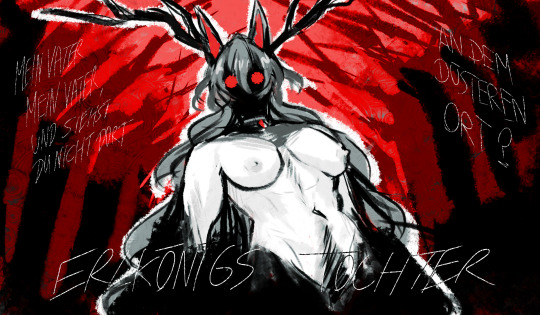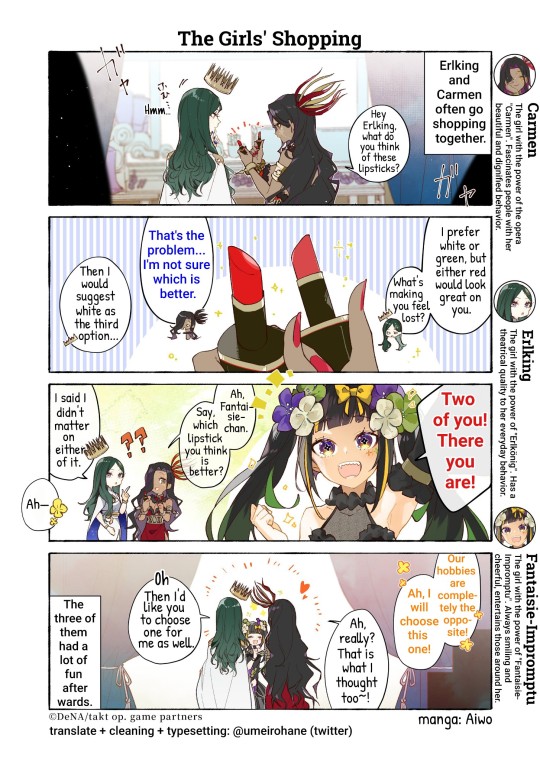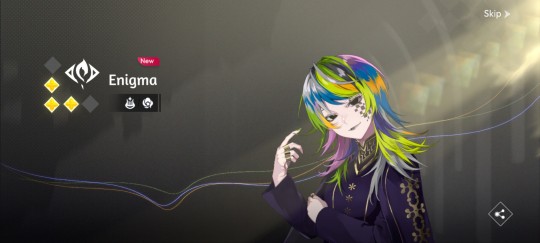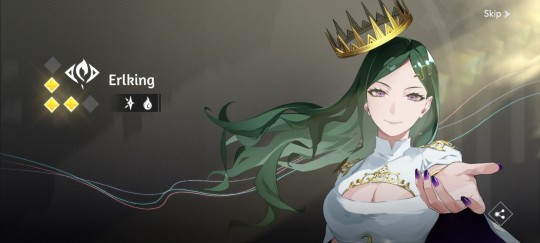#erlking
Explore tagged Tumblr posts
Text
various sprite edits for fun









and an unserious ones below:
---

397 notes
·
View notes
Text


Communication
Happy 107
#heathcliff lcb#dante lcb#heathdante#107#limbus fanart#lcb#limbus company#my art#fanart#digital art#artists on tumblr#erlking heathcliff#erlking
227 notes
·
View notes
Text

maybe if we set a trap out?
#impatient to get him#driftoodles#limbus company#erlking#heathcliff#canto vi spoilers#canto 6 spoilers#limbus company spoilers#if we're lucky we'll get him next week/friday bc of railway!#if youve seen this before no you havent
275 notes
·
View notes
Text

#erlking#erlkönig#poem#goethe#my art#illustration#fae folk#faerie#girls night!!!!!!!!!!!!!!!!!!!#art#artists on tumblr#Horror art
309 notes
·
View notes
Text

"No murder without getting the nod first. Got it."
The Dresden Files | Jim Butcher
43 notes
·
View notes
Text
TGIS IS SO STUPFIDG
#canto 6 spoilers#limbus company#lcb#heathcliff#erlking heathcliff#erlking#heathcliff lcb#heathcliff limbus#heathcliff limbus company#scotti's deliveries
162 notes
·
View notes
Text
[reference coming soon]
With notes from me! The king himself hehe!
Name: Erlking Violet!!
True Name: E___ Haha don’t try and guess it. Seriously. If anyone were to command me I would NOT be a happy camper.
Special Titles: King of the Fae, King of Violets, His Majesty, [???]
Username: @thekingofvewaiy
Nicknames: Earl, Idiot, Dumbass.
Chronological Age: [???]
Age: 55ish! Fae ages are kinda wonky.
Pronouns: He/Him!!
Sexuality: I dunno!
Gender: I am a man!
Species: I’m a changeling!! [???]
Disorders: [???]
Recovering Addictions: Nicotine.
Religion: I believe in the wilds wholeheartedly!!
Job: [???]
Lives in: His Void, Daisy’s Dimension.
Languages: Fae, English, Several other occult languages.
Height: 6’8”!
Ethnicity: Fae.
Accent: No discernible origin.
Voice Claim: Greg Universe from Steven Universe.
youtube
Spirit Form: [???]
Spirit Level: Acceptance.
Powers: [???]
Weaknesses: [???]
Soul: Green Flame!!
Weapons: I have a sword my father gave me, It can extend and shorten depending on what kinda fight I am. It’s neat!! I also have a bow.
Wands: A crystal staff with a wooden handle, It also has ivy growing in it.
Alignment: Lawful Good!!
Text Color: Green!!
Main Animal: Brown Bear.
Main Hobbies: I’ve tried many things over the years, I love to swordfight and I love archery, I also like herbalism and other things like that. I dunno I’m kinda a jack of all trades.
Favorite Food: SOUP, I LOVE SOUP OH MY FUCKING GOD. ALSO BREAD. I LOVE BREAD. PLEASE GIVE ME SOUP AND BREAD.
Favorite Flower: Apple Blossoms!!
Scent: Pine, Copper.
Handedness: Right Handed!
Blood Color: Red!
Awareness: [???]
Birthday: I don’t remember.
Theme:
Playlist:
Fun Facts: Erlking is one of the only people in the house that’s smile isn’t fake.
Stimboard: [???]
Moodboard: [???]
Fashion Board: [???]
Comfort Objects: His crown, His Sword, Drawings his children have made for him.
Family:
[unknown parents]
Venus Bell (Adoptive Son) He has lost his way. But I don’t blame him. I did too.
Eyeris Cataract (Daughter) She has grown into a lovely young woman..
Jessa, Grat, Ann, Daisy, Alice, Emily, The Twins. (Grandchildren) GRANDBABIES!!!
Bell Family (Considers Family) Anyone Daisy trusts, I trust! Even tho I don’t know the girl very well haha.
Friends: Kriston.
Romance: Titania Violet (Deceased) (Wife)
Enemies: I don’t have any enemies!
Patrons: The Wilds!! Also Daisy seems neat. I might poke around her religion.
Reincarnations: [???]
Brief Personality: [???]
Brief Backstory: [???]
#Erlking#OC#ocs#OC reference#my art#original character reference#original character#original characters
27 notes
·
View notes
Text


#limbus company#Limbus Company#project moon#heathcliff#erlking#erlking heathcliff#limbus company heathcliff#wuthering heights#gatcha#invincible#omni man#wife#miss my wife#ect#yeah im adding a billion tags but thats how it works :shrug:
50 notes
·
View notes
Text
I finally watched Nosferatu...
... and, since I was asked to give my thoughts, here they are :)
The movie is a masterpiece, artful, suspenseful, incredibly well acted. It works on several layers:
A story about love(s), both fulfilled and repressed, spiritual and physical
A story about grooming and abuse, and applied, forced sublimation
A story about meta-physical connection and literal supernatural powers
A story about (fatal) demonic possession
(It is also the most "victorian" movie I have seen in a long time.)
And it works on all these layers, which is no small feat.
Ellen is damaged and misunderstood, repressed and freed, forced and yet accepting. Her father put shame on her by trying to save her, society entrapped her, her husband could not fill the void in her soul.
The stories about love(*) between the married couples parallel each other, mirror each other. One marriage fulfilled and fulfilling, one only begun and kept wanting, though not for lack of trying, but both ending almost simultaneously. The end is foreshadowed, the mausoleum vs the bed, the fire vs the sunrise.
The story about abuse and grooming seems very clear as well - the almost literal implementation of the "Erlkönig", the "Erlking" an old german poem by Goethe about a king abusing a child, the english translation of that famous poem stating so viciously:
"I love you, your beautiful form excites me; And if you're not willing, then I will use force."
Ellen reacts with shame and denial, and confusion when challenged on what was, her begging at her husband's feet seemed to make that past shame very clear. Orlok tells her that if she does not come willingly... he will use force. And does.
The story about the supernatural connection is threaded all the way through as well, not to be dismissed - Ellen is connected, her mind yearned through the possibilities she was given, and she did connect - and in innocence and desire invited Orlok. Her powers are there, always controlled, always a part of her that she denies but cannot help use nonetheless, rebelling against the controlling of them at the same time that she is folding to that control through society's demands. Her connection cannot be severed, she is the reason, and though it is not her fault she immediately knows that it can only end if she ends it.
The story about demonic possession is also done so well. It calls back to the Exorcist (movies, I have not (yet) watched the show), pays homage to many a horror movie. The possession is not voluntary, something that is easily recognized by the witnesses, and which adds another element of force to it all.
Brilliant, dark, very gothic movie.
Which also dared to state that there is also love between Orlok and Ellen. Another story level, denoted above with the (*) - because there is. Orlok is just another kind of love than the "husbands" are, another kind of love than society... allows.
Orlok is the dark desires of getting fucked hard. Pleasure for pleasure's sake, not for bearing children, not for prosperity, no, only for herself. The appetite, the hunger, the freedom from the shame that was forced upon her. He recognizes that hunger in her, that is why they connect - something in them recognizes the other's hunger, the desire, the soul beneath the corset and superstition.
Ellen... lives in a society which suppresses and condemns her (urges, will, desires, hopes, dreams), constantly, all the while regarding her as fully able to consent to sexual actions, even at what we now definitely consider a childish age.
Victorian society considered people to be of the age of consensual sex at the wee age of TWELVE by the way. Which pays heavily into her claiming she "was but a child" - yes she was, but not in society's eyes.
(I mean, we can clearly point our fingers, but we have a lot of very current cultures and societies on this planet which do the same, or worse, still. And even in the US there's still laws which do not set a minimum age re marriage.)
(Also, if you want to read a rather horrifying article about consent (here is an article about the history of consent)).
Anyways.
Nosferatu was a brilliant, delightful, gothic movie, functioning on several layers.
It is all, the big love triangle, and the movie about an abusive relationship, the demonic possession horror and the spiritual yearning gone wrong, it manages the balancing act of toeing the middle line while never losing sight of the other layers.
Ellen invites Orlok. He frees an aspect of her, a fraction, and this hurts her, it has to hurt her, because the rest of her cannot follow - and it is irrelevant here if the initial invitation came with innocence or abuse - it changed Ellen, opened her eyes to structures that were maybe never felt prior to that first connection.
And afterwards, there was never a real way out, the only freedom Ellen could truly obtain... was death. And the only satiation Orlok knew he could obtain was with her, since she woke him, and so he accepted it, at the end.
Tagging @your-girl-is-lovely and @madevampselle since you guys asked back then, sorry for the long wait!
19 notes
·
View notes
Text
Erlking
In European folklore and myth, the Erlking is a sinister elf who lingers in the woods. He stalks children who stay in the woods for too long, and kills them by a single touch.

Pic by Sammycat17 on deviantart
The name "Erlking" is a name used in German Romanticism for the figure of a spirit or "king of the fairies". It is usually assumed that the name is a derivation from the ellekonge (older elverkonge, i.e. "Elf-king") in Danish folklore. The name is first used by Johann Gottfried Herder in his ballad "Erlkönigs Tochter" (1778), an adaptation of the Danish Hr. Oluf han rider (1739), and was taken up by Johann Wolfgang von Goethe in his poem "Erlkönig" (1782), which was set to music by Schubert, among others. Goethe added a new meaning, as "Erl" does not mean "elf", but "black alder" - the poem about the Erlenkönig is set in the area of an alder quarry in the Saale valley in Thuringia. In English translations of Goethe's poem, the name is sometimes rendered as Erl-king.
According to Jacob Grimm, the term originates with a Scandinavian (Danish) word, ellekonge "king of the elves", or for a female spirit elverkongens datter "the elven king's daughter", who is responsible for ensnaring human beings to satisfy her desire, jealousy or lust for revenge. The New Oxford American Dictionary follows this explanation, describing the Erlking as "a bearded giant or goblin who lures little children to the land of death", mistranslated by Herder as Erlkönig in the late 18th century from ellerkonge. The correct German word would have been Elbkönig or Elbenkönig, afterwards used under the modified form of Elfenkönig by Christoph Martin Wieland in his 1780 poem Oberon.
Alternative suggestions have also been made; in 1836, Halling suggested a connection with a Turkic and Mongolian god of death or psychopomp, known as Erlik Chan.
Johann Gottfried von Herder introduced this character into German literature in "Erlkönigs Tochter", a ballad published in his 1778 volume Stimmen der Völker in Liedern. It was based on the Danish folk ballad "Hr. Oluf han rider" "Sir Oluf he rides" published in the 1739 Danske Kæmpeviser. Herder undertook a free translation where he translated the Danish elvermø ("elf maid") as Erlkönigs Tochter; according to Danish legend old burial mounds are the residence of the elverkonge, dialectically elle(r)konge, the latter has later been misunderstood in Denmark by some antiquarians as "alder king", cf Danish elletræ "alder tree". It has generally been assumed that the mistranslation was the result of error, but it has also been suggested (Herder does actually also refer to elves in his translation) that he was imaginatively trying to identify the malevolent sprite of the original tale with a woodland old man (hence the alder king).
The story portrays Sir Oluf riding to his marriage but being entranced by the music of the elves. An elf maiden, in Herder's translation the Elverkonge's daughter, appears and invites him to dance with her. He refuses and spurns her offers of gifts and gold. Angered, she strikes him and sends him on his way, deathly pale. The following morning, on the day of his wedding, his bride finds him lying dead under his scarlet cloak.
Although inspired by Herder's ballad, Goethe departed significantly from both Herder's rendering of the Erlking and the Scandinavian original. The antagonist in Goethe's "Der Erlkönig" is the Erlking himself rather than his daughter. The Erlkönig appears to a young boy in a feverish delirium - his father, however, identifies the apparition as a simple streak of fog. Goethe's Erlking differs in other ways as well: his version preys on children, rather than adults of the opposite sex, and the Erlking's motives are never made clear. Goethe's Erlking is much more akin to the Germanic portrayal of elves and valkyries – a force of death rather than simply a magical spirit.
In Angela Carter's short story "The Erl-King", contained within the 1979 collection The Bloody Chamber, the female protagonist encounters a male forest spirit. Though she becomes aware of his malicious intentions, she is torn between her desire for him and her desire for freedom. In the end, she forms a plan to kill him in order to escape his power.
Charles Kinbote, the narrator of Vladimir Nabokov's 1962 novel, Pale Fire, alludes to "alderkings". One allusion is in his commentary to line 275 of fellow character John Shade's eponymous poem. In the case of this commentary, the word invokes homosexual ancestors of the last king of Zembla, Kinbote's ostensible homeland. The novel contains at least one other reference by Kinbote to alderkings.
In Jim Butcher's The Dresden Files, there is a character called the Erlking, modeled after the leader of the Wild Hunt, Herne the Hunter.
In the author John Connolly's short story collection Nocturnes (2004), there is a character known as the Erlking who attempts to abduct the protagonist.
The New Yorker's "20 Under 40" issue of July 5, 2010 included the short story "The Erlking" by Sarah Shun-lien Bynum.
A version of the Erl-King is mentioned in Zoe Gilbert's Mischief Acts, implied to be a figure related to Herne the Hunter.
In Andrzej Sapkowski's The Witcher saga, the highest leader of the Folk of the Alder elves, Auberon Muircetach, is also known as the Alder King. In the story, he maintains thematic ties to kidnapping: the Wild Hunt, known for abducting humans, is subordinate to him, and he orchestrates the imprisonment of Cirilla.
12 notes
·
View notes
Text
May Schubert forgive me for this, but I have transposed Erlkönig (D. 328) into major.
You all should be forced to hear this, too. Someday I need to sing it and get it not-synthesized.
2 notes
·
View notes
Text
Musicart 4koma (04)
4koma manga series by Aiwo
Was announced on the February 2023 livestream, Takt op's official twitter account will begin its online 4koma manga project about the Musicarts' daily life and interactions! This serves as part four of this post, make sure to look forward for more!
——————————————————————
important note : since this was posted at the JP game twitter acc, to read the manga would be from left to right !
——————————————————————
# 13 : The Girls' Shopping
Featuring Erlking, Carmen, and Fantaisie-Impromptu

# 14 : Power!
Featuring Pomp and Circumstance and Daphnis et Chloé

# 15 : Smooth Talk
Featuring Fantaisie-Impromptu and Carmen

# 16 : A Misunderstanding Because of a Smile
Featuring Canon, Fledermaus, Destiny, and Carmen

I also had a compiled twitter thread of this too so go HERE for the thread!
——————————————————————
#my translates#translation#takt op.#gata: game tls#takt opus#takt op. destiny by the city of crimson melody#タクトオーパス#illustration#musicart 4koma manga#erlking#pomp and circumstance#fantaisie impromptu#canon#carmen#daphnis et chloé#destiny
4 notes
·
View notes
Text
#the bloody chamber#the bloody chamber and other stories#angela carter#short story collection#bluebeard#puss in boots#erlking#fairytale#dark fairytale#fairytale retellings#fantasy#fantasy horror#spooky reads#books#booklr#book reviews#book blog#the grimm librarian
0 notes
Text
Recent gacha scouts in Takt Op Symphony
Engima


Titan


Half anniversary free pulls
Swan Lake


Erlking


1 note
·
View note
Text







A second one, because why not!
#limbus company#lcb#faust lcb#rodion lcb#outis lcb#heathcliff lcb#don quixote lcb#yi sang lcb#meursault lcb#sinclair lcb#gregor lcb#erlking heathcliff#dulcinea lcb#curiambro lcb#nicolina lcb#don quixote of la manchaland#bari lcb#donbari#hohenheim lcb
947 notes
·
View notes
Text

Erlking Heathcliff (Limbus company) commission
(loved working on this illustration a lot!)
548 notes
·
View notes